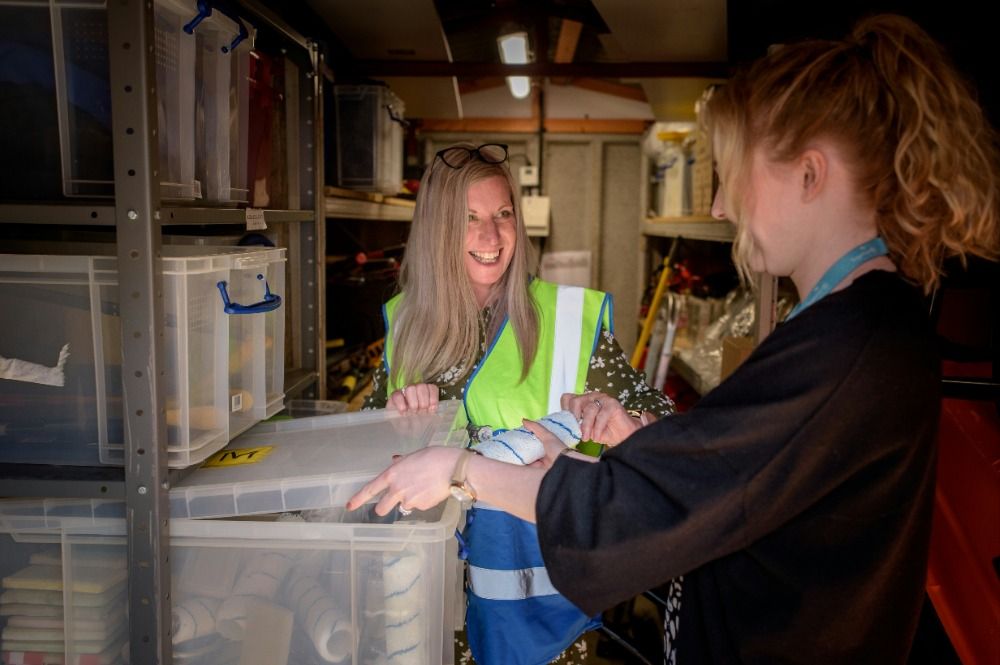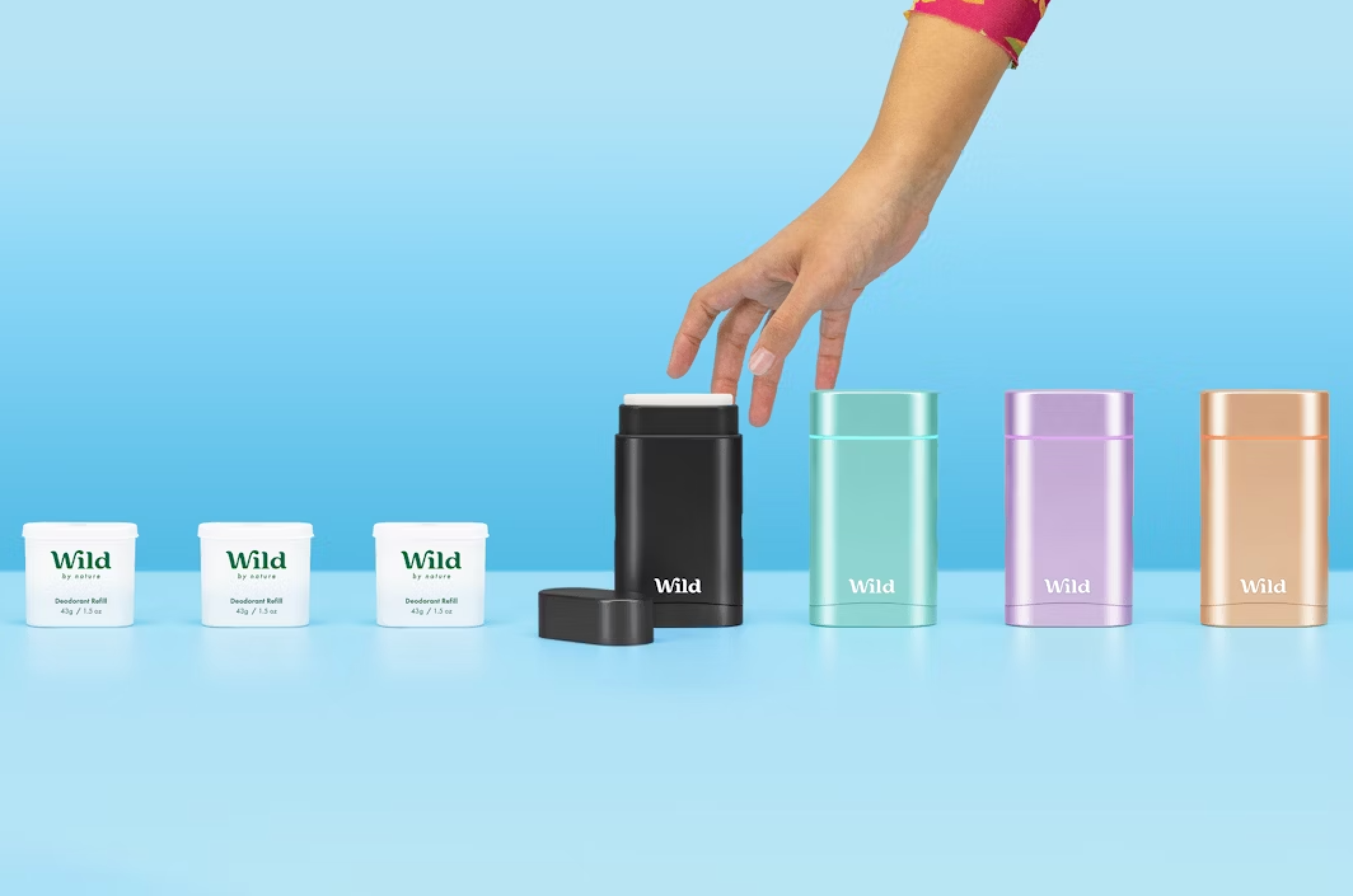How King Kong Apparel accelerated their growth
At King Kong Apparel, we’ve spent years building strong relationships with our manufacturers overseas. Instead of the usual stringent contract terms, we’ve earned some much-appreciated flexibility on things like minimum order quantities and production timelines.
And it’s led to a higher-quality product. I’ve got such a high level of trust with our manufacturer that they’ll load thousands of bags into a container and ship it directly from China to the U.S.
All the quality control processes are done at the factory; we no longer need to check a percentage of the products before they go to our customers.
I know that’s due to the relationships we’ve built over time with our manufacturers, and the key to building those relationships is creating personal rapport. Here’s how we did it.
We visited our factories frequently to build a personal relationship
Once we placed our first couple of orders with our main manufacturer about eight years ago, I started visiting them regularly.
It’s much easier to build a relationship with your factory contacts in person, and it also gave me an inside look into how things work at the facility — their opportunities and limitations.
There are so many reasons why I’d highly recommend going over to visit your manufacturer on-site, whether they’re in China or India or anywhere else in the world.
The personal connections you make will benefit your relationship with your contacts there and help you create an even better product. These are just a few of the biggest benefits that I found from my in-person visits.

You’ll earn more goodwill from your manufacturer
King Kong Apparel has its HQ in Australia, so southern China is a relatively easy plane ride for me.
Travel has obviously been difficult, if not impossible, for the past couple of years. But any founder who has the chance to visit in person should do it at the next opportunity, no matter how far the trip.
A trip to the APAC region might cost you a few thousand dollars, and it’s worth paying. It shows your manufacturer you’re serious about working together and building a strong relationship.
They’ll see you’re invested in them, and some of those strict terms you started with, like a 500-unit minimum order quantity, might loosen up if you really need it later on.
You’ll build more personal rapport
Visiting in person allows more opportunities for relationship-building you don’t get any other way. You’ll have the chance to sit down and have dinner with the factory owner or manager.
I’ve been to visit about a dozen times over the last eight years. I’ve made dumplings with them and visited their families. As someone who doesn’t make enormous volumes of each SKU, those personal relationships have been crucial for us to earn some flexibility along the way.
You’ll gain more insight into design opportunities for your product
Founders should visit their factories because it helps their side of the relationship, too. I’ve always found that going over there just fills you with energy, and there’s so much opportunity to learn about what’s actually possible to design into a new product.
Your manufacturer can email you details on different types of materials, and they can even ship you some samples. But you gain a totally different perspective from seeing everything laid out in front of you.
I remember on one of our first trips; we had the chance to visit a fastener warehouse.
The warehouse was the size of two tennis courts, and inside was row after row of shoulder straps, buckles, and every other fastener you could possibly imagine for a duffel bag. Even for such a narrow set of materials, the scale was mind-boggling to see. It really energizes your product development and designs.
We video conference regularly with our manufacturers when we can’t visit
Travel is still out of the question for many countries where manufacturers are located; China is still not allowing many foreigners to visit.
To make up for it, we frequently get on video and voice calls so that we can connect with our manufacturers and maintain personal connections.
There are some limitations around the technologies they can use, especially in China. There are some apps they won’t be able to access from their app stores, so it’s important to be conscious of that. It helps show you’re serious about developing a good relationship, and it’s going to lead to good communication.
Zoom, for example, isn’t usually accessible in China, but it works well in India. But the messaging app WeChat is very popular in China, and you can jump on there for video calls. It’s just another app for you to add to your phone, and on their side, they’re already really familiar with it and using it every day.
WeChat offers really good Chinese-to-English and English-to-Chinese translation for text messages, so it’s certainly possible to communicate that way between video calls.
It’s a great way to stay in daily contact while clarifying important logistics. You could be chatting with your manufacturer and they respond in Chinese, and you hit the translate button; then you respond in English, they translate on their end, and you’ll each get a good understanding of the conversation.
On a video call, you get a much better feel for the other person and a level of trust and friendship you don’t get when it’s not face-to-face. We’ve found that checking in with regular calls has helped to maintain those personal relationships even when we can’t visit the factory in person.
The communication tools available now are far better than they used to be. Even though they can’t fully re-create the connection you’d get from an in-person visit, they’re easy to use and there aren’t usually issues with call quality.
On a video call, you get a much better feel for the other person and a level of trust and friendship you don’t get when it’s not face-to-face. We’ve found that checking in with regular calls has helped to maintain those personal relationships even when we can’t visit the factory in person.
We’re clear about expectations and educate our factory team about how the product is used
Know your materials and designs well enough to instruct the factory specifically on what to make upfront. It shows you’re serious about partnering closely, and you’ll set really clear expectations from the beginning about what you want from your finished product.
The manufacturers’ strengths are not innovation or design. Their skillset is generally very narrow, and that’s manufacturing your product to your specifications.
In our case, our factory buys the right materials — they don’t produce materials — and then they handle the cutting and sewing to make our duffel bags and backpacks. You need to be the one to tell them what to make, based on your product and customer needs.
Be straightforward about everything from sizing to stitching to manufacturing processes, and you’ll create a good relationship because the expectations will be clear from the beginning.
At King Kong, for instance, our primary customer falls into a fitness demographic. They’re in the gym every day, and they’ve got specific pain points about what they carry to the gym, what they carry to work, and how that works within their lifestyle.
Our factory has no idea about all of that. Instead, we use that knowledge to inform them about how we want the product manufactured. Be straightforward about everything from sizing to stitching to manufacturing processes, and you’ll create a good relationship because the expectations will be clear from the beginning.

This transparency and good communication up front also helps make the product better, so you differentiate within your target market.
For us, the only way we can compete with the Under Armours and the Nikes is by having far superior products customers will love and talk about.
So I’ve told our factory owner in the past that we need the best materials and the best finishing, even if it costs more. We set that expectation up front, and they’ve delivered for us.
For your business, tell your manufacturer what your non-negotiables are. We also provide long-term warranties for all of our products, so toughness and durability are must-haves for us, too.
You can also show your manufacturer photos of how customers use your product so they get a feel for real-world use, and they can see where to strengthen or improve it.
We give direct, constructive feedback on samples
You aren’t going to offend your manufacturer by being direct about what’s wrong with a sample and where it needs to be improved, so it’s important to be as direct as possible when you’re going through the sampling process.
There isn’t any point in trying to sugarcoat things because it isn’t helpful for you or them. Your manufacturer wants to build exactly what you want so they can continue working with you; if they fail, you won’t want to use them.
There isn’t any point in trying to sugarcoat things because it isn’t helpful for you or them. Your manufacturer wants to build exactly what you want so they can continue working with you; if they fail, you won’t want to use them.
Be direct and clear when you’re telling them what can be improved, so they can actually deliver and your relationship can continue to move forward.

Sometimes there are language barriers to consider, and direct feedback helps there, too.
Language like “This is unacceptable” works perfectly fine if you’re unhappy with a certain aspect of the sample. Your feedback will get straight to the point, and there’s really no room for misinterpretation.
We also try and present our feedback in a way that’s straightforward and easy to interpret.
We use PowerPoint presentations to take photos of the samples, and then we’ll make comments and draw arrows, lines, or other diagrams on the slide to call out whatever we need. We’ll number each comment or point in the presentation and then go over them one by one on a video call to make sure our feedback is clear.
View your manufacturing partners as an extension of your company
If you asked yourself how you’d go about improving relationships with your marketing team, the short answer is you probably wouldn’t have to because you talk to them every day.
You’re on video chats regularly. You’re talking about how to grow together, what you’d like to improve, etc. Maybe you’re also meeting some members of the team after hours, and you probably know a bit about their families.
Shift your mindset from, “We use this factory, and they produce our goods,” to “This factory is part of our company and an extension of our brand.”
Founders should view their manufacturers in the same light. They’re doing one of the most important jobs for your company, which is producing the actual products you’re selling to customers.
You should view them as part of the business and see them as people you work with on a daily basis. Shift your mindset from, “We use this factory, and they produce our goods,” to “This factory is part of our company and an extension of our brand.”
King Kong Apparel is one of the thousands of eComm companies that has achieved faster growth and gained deeper insights thanks to Wayflyer. Book a call now to learn more about finding a tailored solution for your business.



